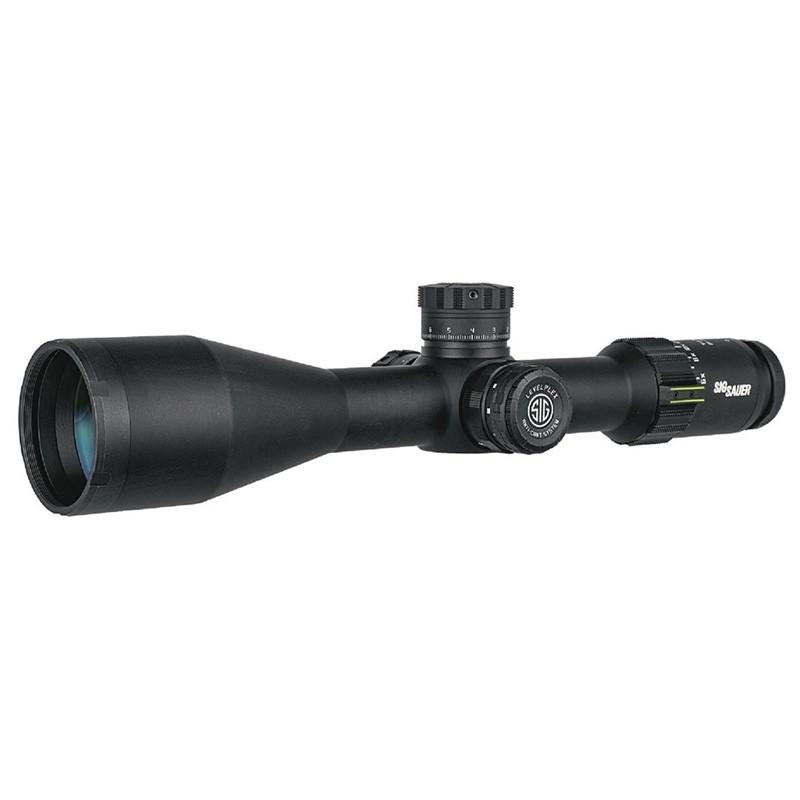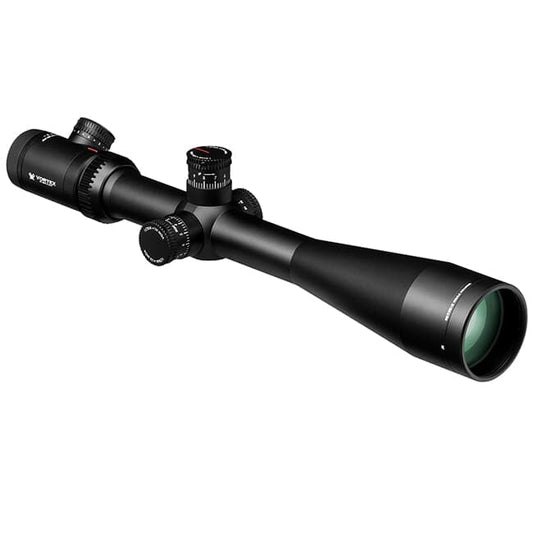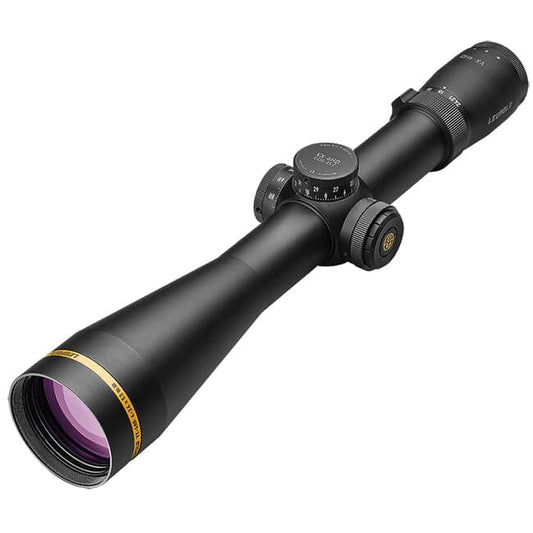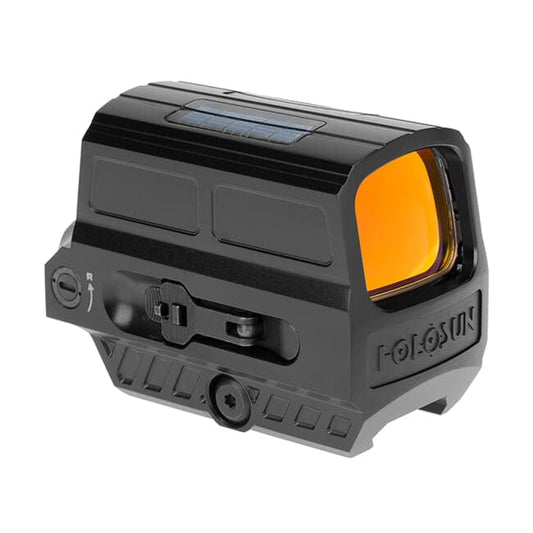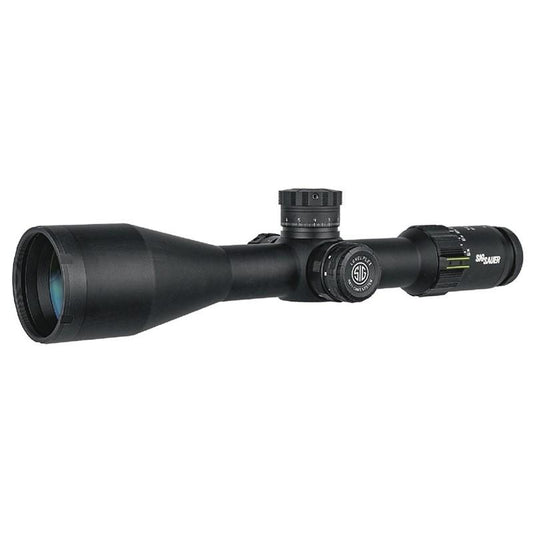

Sig Sauer TANGO-DMR Rifle Scope 5-30x56 34mm FFP DEV-L MRAD Matte Black offers precise targeting for competitive and recreational shooters alike. With a magnification range of 5-30x, this scope ensures clarity and accuracy from short distances to extreme ranges. The first focal plane (FFP) design allows for consistent reticle subtensions at all magnification levels, giving shooters reliable performance under varied conditions.
Engineered for durability, the TANGO-DMR features a lightweight construction that enhances maneuverability without compromising strength. The zero-stop multi-turn elevation dial simplifies adjustments, while the illuminated reticle provides enhanced visibility in low-light scenarios. An included sunshade further reduces glare, making this scope a practical choice for any shooting environment.
Features:
- ZERO STOP FUNCTIONALITY for quick return to zero, enhancing your shooting experience.
- LOW-PROFILE DESIGN prevents snagging on gear, allowing for hassle-free transport.
- LIGHTWEIGHT CONSTRUCTION reduces overall weight on your rifle, improving maneuverability.
- ILLUMINATED RETICLE for visibility in low light conditions, ensuring accuracy at dawn or dusk.
- HIGH MAGNIFICATION (5-30x) for versatile shooting scenarios, from short-range to extreme distances.
- PREMIUM OPTICS provide unparalleled image quality, enhancing target acquisition and aiming.
- REMOVABLE THROW LEVER for quick magnification adjustments, tailored to your shooting style.
- SUNSHADE INCLUDED to minimize glare and reflections, optimizing your line of sight.
Technical Specifications Table
| Specification | Details |
|---|---|
| Magnification | 5-30x |
| Lens Diameter | 56mm |
| Tube Diameter | 34mm |
| Weight | 29 oz |
| Length | 16.5 inches |
| Reticle | DEV-L MRAD |
| Illumination | Yes |
| Finish | Matte Black |
What’s in the Box?
- Sig Sauer TANGO-DMR Rifle Scope
- Sunshade
- Removable Throw Lever
- User Manual
- Lens Covers
Customer Reviews
“Absolutely love this scope! The clarity is amazing, and the features make long-range shooting a breeze.”
“I’ve tried multiple scopes, and the TANGO-DMR is by far the best for my tactical needs. Highly recommend!”
FAQ
Many customers wonder about the performance of the Sig Sauer TANGO-DMR. It excels in both brightness and clarity, making it ideal for low-light conditions. The illuminated reticle adds significant value for precision shooting at dawn or dusk.
Maintenance is straightforward; simply clean the lenses with a soft cloth to avoid scratches. As for comparison, while there are other scopes in this range, the TANGO-DMR stands out with its robust features, including the zero-stop elevation dial and the high-quality optics that won't let you down.
Similar Models
If you’re intrigued by the TANGO-DMR, explore our collection of Sig Sauer optics for more exceptional choices tailored to your shooting needs. Consider models like the Sig Sauer Tango6 for versatility or the Sig Sauer Whiskey3 for a compact, robust option. Discover the perfect optics to enhance your shooting experience today!
You May Also Like
Here’s some of our most similar products people are buying. Click to discover trending style.

